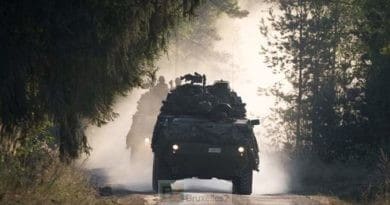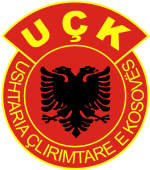EUTM Somalia: EU Embassy in “Lisbon format”
 (BRUSSELS2) The Delegation of the European Commission in Uganda - sorry the EU embassy - is the first embassy (to my knowledge) of the European network to have experienced the diplomatic conduct of an EU military mission. The delegation of the European Commission has, in fact, switched to January 1 as the embassy of the EU. And she took part in all the negotiations, particularly in relations with the Ugandan authorities.
(BRUSSELS2) The Delegation of the European Commission in Uganda - sorry the EU embassy - is the first embassy (to my knowledge) of the European network to have experienced the diplomatic conduct of an EU military mission. The delegation of the European Commission has, in fact, switched to January 1 as the embassy of the EU. And she took part in all the negotiations, particularly in relations with the Ugandan authorities.
I was able to meet its ambassador, Vincent de Visscher, who has been in the country for nearly three years. A Belgian who, in his spare time, is also an aviation fan. He has a small passenger plane, with which he travels the country. The European Commission Delegation in Uganda - sorry the EU Embassy - is the first embassy (to my knowledge) in the European network to have experienced the diplomatic conduct of an EU military mission.
(Nicolas Gros-Verheyde)
• How would you define this EUTM mission to train Somali soldiers?
VdV - It's part of our overall strategy for Somalia. The EUTM Somalia mission fills a gap in our objective to assist in the security of Somalia and to support the TFG (Somali Transitional Government) to restore peace and order in the country. Stabilizing Somalia, a fragile country facing terrorism, is not only important for the EU but also for the countries of East Africa.
• You are now an EU ambassador and not just the head of the Commission delegation, what has that meant for you?
VdV - Definitely more work... (laughs). More seriously, it gives the representative of the European Union credibility and a greater dimension to our mission in Uganda. It is important that Europe speaks with one voice. Here we are a bit the eyes, the ears, the unique face of the European Union on the outside. We have contacts with the Ugandan authorities (Ministry of Defence, Foreign Affairs, Head of Defense) but also with the media. It is not easy indeed to bring 1-2000 Somali soldiers into the country. The Ugandan public needs an explanation. We have to explain to them what we are doing, that we are working for their safety.
• You talk about additional credibility, what do you mean?
VdV - Too often the Ugandan public sees us as a development partner, dealing with projects, road programs and rural development, humanitarian tasks, we are of course a political actor, we have a dialogue with the authorities, this mission brings us a dimension of actor in security and peace in the region.
• The Somalis will be trained in Bihanga, western Uganda, in a somewhat outlying region. Apart from the security mission, does the European Union have any action in this region?
VdV - Yes. If the site of Bihanga was chosen by the UPDF, it is also important for the local population - around 10.000 people - to perceive benefits at the local level. We are renovating a small airstrip, and equipment such as water points. We plan to build a new school, road access... (*) It is important to do this for a better perception of EUTM, like the EU, in Uganda.
• Last point, the SOFA (force protection agreement) has not yet been signed, when will it be, why this delay?
VdV - The SOFA should be signed, in a few days, on May 20, I hope. Uganda's constitutional system had to be respected, including consultation with the solicitor general.
(*) access who needs it, I can testify 🙂
(photo credit: Council of the EU)


